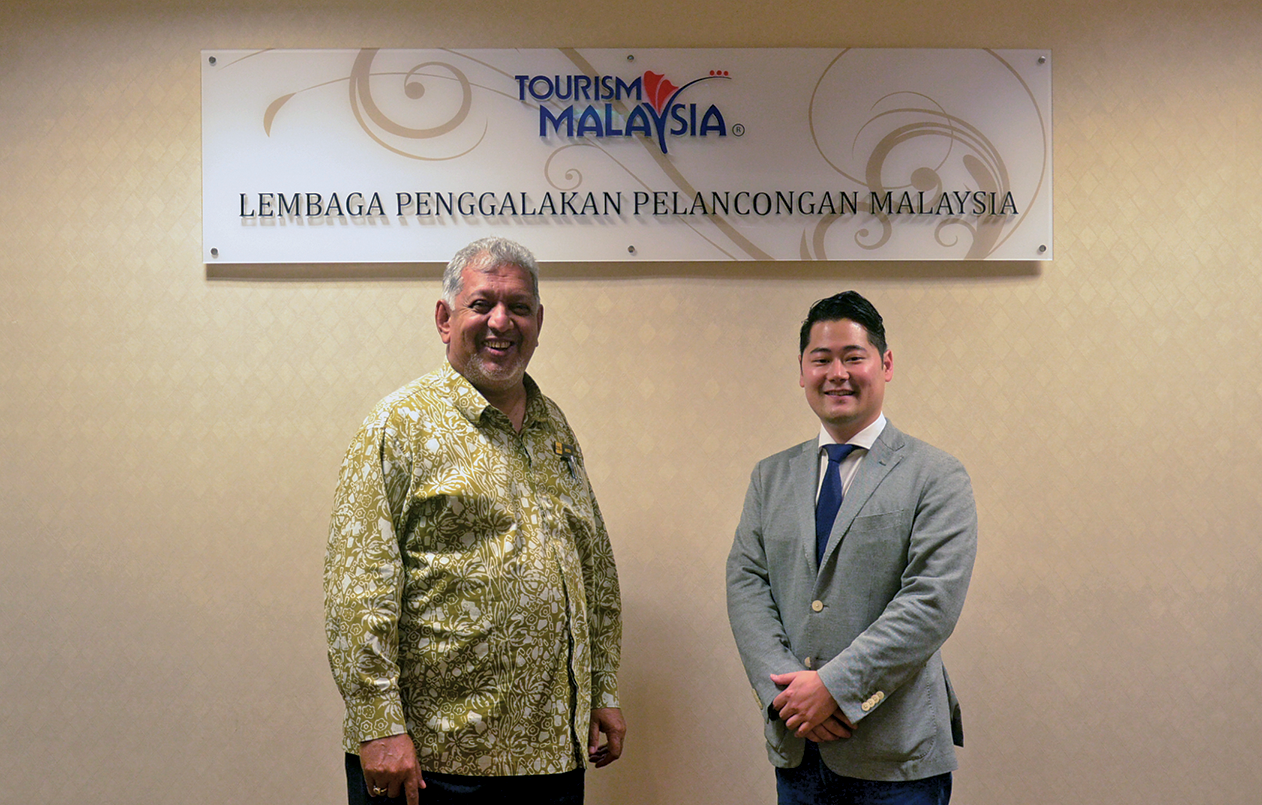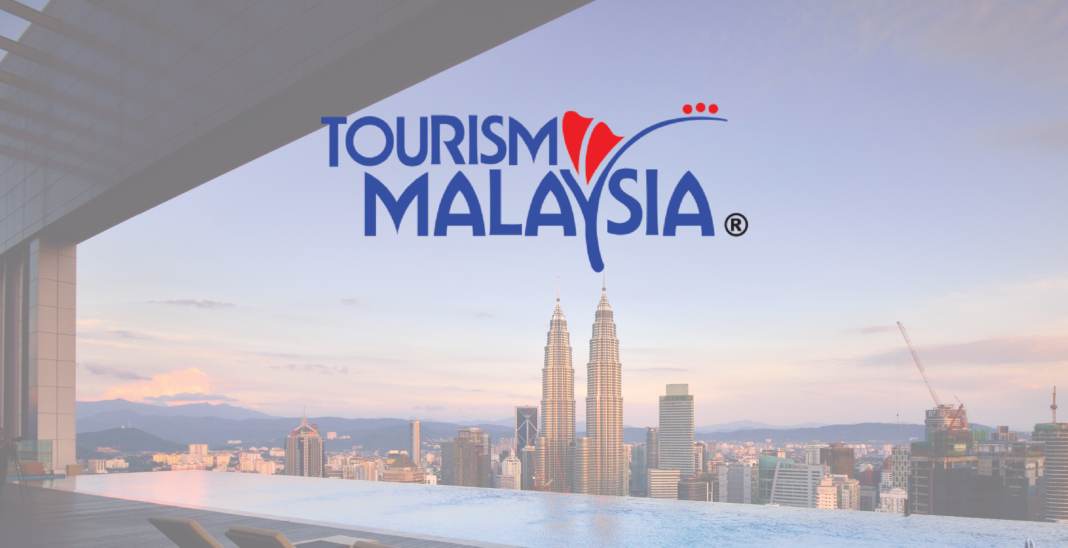In our exclusive interview with Tourism Malaysia, we speak to Director General Datuk Seri Mirza Mohammad Taiyab who explained to us the goals and ambitions of the tourism industry in Malaysia.

UJ: What is the main role and activities of Tourism Malaysia?
Our mission is to market Malaysia as a destination of excellence and to make the tourism industry a major contributor to the socio-economic development of the nation. Our objectives are to increase the number of foreign arrivals whilst also extending the average length of stay of tourists and to increase per capita expenditure. We want to stimulate the growth of domestic tourism and encourage a planned holiday culture. Under the Economic Transformation Programme (ETP) which was introduced in 2010, the government has identi ed several niche areas under Tourism Malaysia to focus on. For example, under the Tourism National Key Economic Area (NKEA) the government has outlined several initiatives such as positioning Malaysia as a shopping destination, as well as developing cruise and gold tourism amongst others. Overall, this leads to a bigger theme of positioning Malaysia as a luxury destination, which has guided our marketing e orts in the last several years.
UJ: What are the major factors to promote Malaysia to Japanese?
In 2016, Japan was the 9th highest tourist generating market for Malaysia, contributing 0.41 million tourists to the overall 26.8 million tourist arrivals in Malaysia. Among the factors that attract Japanese tourists to Malaysia, they include the youth exchange and educational tourism programmes, of which Malaysia was ranked 12th in the world as most preferred education destination by UNESCO in 2014 as well as ranked 1st among Southeast Asian countries as the preferred choice for tertiary and continuing education. The Malaysia My 2nd Home programme (MM2H) has proven to be popular amongst Japanese as Malaysia has been selected as the top choice for long stay programmes for 10 consecutive years, according to a survey done by the Long Stay Foundation of Japan. Japan is currently the second largest country participating in the programme after China. Another programme is the Malaysia Home Stay programme which recorded 57,178 participating international tourists. Of this, a 13,163 were from Japan and as such is the second largest group after Singapore. Leisure activities such as golf are also a huge attraction in Malaysia and this can be down to the tropical climate we live in, so it’s possible to play golf all-year round. Malaysia boasts over 200 golf courses, many of which are of international standards with a varying degree of challenges and landscapes to discover.
UJ: What are the current issues and obstacles that Tourism Malaysia face?
Safety is a concern amongst travellers especially ‘‘Japan and Malaysia have preserved collaborative ties on various fronts including trade and diplomacy’’ the Japanese. For Tourism Malaysia, safety is always a top priority. Currently, the Japanese are concerned about the issues in North Korea and terrorism attacks around the world. Another issue is the economic situation which includes rising costs and in ation. The Japanese are keen to travel however they are also trying to cut down on spending, thus, if they travel, they tend to travel short-haul. The RM-Yen currency exchange rate has escalated advertising costs in Japan for Malaysia and its di cult to sustain awareness of Malaysia in Japan through advertising and promotional activities due to the rising costs and high exchange rate. UJ: What is the vision and strategic plan or program of Tourism Malaysia? Overall for Malaysia, we will continue to use the ‘Malaysia Truly Asia’ branding as it embodies the spirit of racial diversity and unity. This was the very element that made our country unique, and we celebrated that diversity. Ever since the launch of ‘Malaysia Truly Asia’, we have increased tourism arrivals, tourism receipts and brand awareness. As for Japan, Tourism Malaysia and JATA have agreed to proceed with the second phase of One Million Project for three and a half years from October 2015 to March 2019 with special focus on edu-tourism, business travel and technical visits by local governments and other relevant parties. Japan is now aimed at becoming a tourism-oriented nation and is making concerted efforts for the success of the upcoming Tokyo Olympics 2020. For this purpose, its people need human resource who can handle new businesses by dealing with foreigners with different cultural backgrounds in various foreign languages including English, Chinese, etc. In this sense, Malaysia is a perfect destination for Japanese people to learn about a successful model in many fields including tourism, education, business, communication, IT, etc. This is a good chance for Malaysia to reinforce the country’s branding image as a growing business, education and tourism hub in ASEAN by working closely with JATA to generate further demand for visiting Malaysia under the One Million Project.
UJ: What message would Tourism Malaysia like to deliver to Japanese readers?
2017 is the year to commemorate the 60th anniversary of Japan and Malaysia’s diplomatic relations. Over many years, Japan and Malaysia have preserved collaborative ties on various fronts including trade and diplomacy, in addition to tourism. With the establishment of the Japan NTO in Kuala Lumpur since March, it gives opportunities for both our countries to work together. I believe that Japan’s culture, food and landscapes will continue to attract Malaysians there. At the same time, Malaysia’s tourist attractions such as our language and cultural programmes, including our homestay and longstay programmes will be of great interest to the Japanese market. We are confident about the potential of high growth in the Japanese tourist arrivals to Malaysia in the coming years. Japan is well-connected to Malaysia where the major airports in Tokyo, Osaka and Sapporo offer a total of 62 weekly direct flights to Malaysia with 18,373 seats via Malaysia Airlines, AirAsia X, Japan Airlines and All Nippon Airways. I welcome all Japanese to our shores to experience the Malaysia Truly Asia hospitality and enjoy our islands and beaches, food, culture, history, nature and more.





![Progate in the Indian Programming Education Market [Part2]](http://unlockjapan.jp/wp-content/uploads/2021/03/Progate_app1-1-218x150.png)
![The Future of Programming Education: Progate [Part1]](http://unlockjapan.jp/wp-content/uploads/2021/03/COO_TakuyaMiyabayashi-218x150.png)


